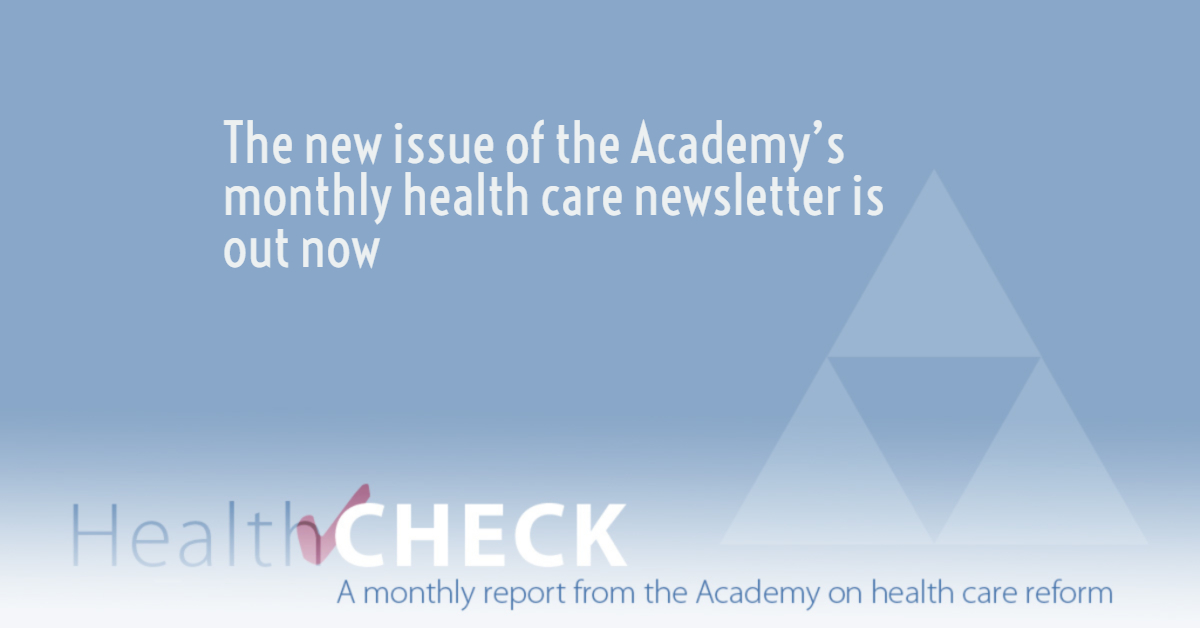Skip to content
This is an archived page
The content on this page may contain broken links or outdated information and should be used as reference only. If you require a specific resource from this page that is otherwise unavailable, contact us and we may be able to assist in finding it, or informing you the resource is no longer available to the Academy as well.
|
|
 |
|
|
Legislative and Regulatory Updates
 The U.S. Senate rejected two proposals on Nov. 29 that would have repealed the IRS 1099 reporting provision included in the Affordable Care Act (ACA). The provision requires businesses that spend $600 or more with a vendor to file a Form 1099 with the Internal Revenue Service starting in 2012. The reporting requirement would raise approximately $2 billion a year, according to estimates provided by the Joint Committee on Taxation. The U.S. Senate rejected two proposals on Nov. 29 that would have repealed the IRS 1099 reporting provision included in the Affordable Care Act (ACA). The provision requires businesses that spend $600 or more with a vendor to file a Form 1099 with the Internal Revenue Service starting in 2012. The reporting requirement would raise approximately $2 billion a year, according to estimates provided by the Joint Committee on Taxation.
 President Obama signed into law H.R. 5712 on Nov. 30, a bill that would delay by one month a 23 percent cut in Medicare reimbursement rates for doctors scheduled to go into effect Dec. 1. H.R. 5712 is the fifth short-term extension of current Medicare rates in the past year. President Obama signed into law H.R. 5712 on Nov. 30, a bill that would delay by one month a 23 percent cut in Medicare reimbursement rates for doctors scheduled to go into effect Dec. 1. H.R. 5712 is the fifth short-term extension of current Medicare rates in the past year.
 The National Commission on Fiscal Responsibility and Reform released a report on Dec. 1 that proposed cutting the federal deficit by $3.8 trillion over nine years. The commission adjourned on Dec. 3 without taking a formal vote, but the proposal received a majority of support from the commission, with 11 of its 18 members in support. The proposal, however, needed the support of at least 14 of the 18 commission members to be adopted and brought up for a floor vote in Congress. The National Commission on Fiscal Responsibility and Reform released a report on Dec. 1 that proposed cutting the federal deficit by $3.8 trillion over nine years. The commission adjourned on Dec. 3 without taking a formal vote, but the proposal received a majority of support from the commission, with 11 of its 18 members in support. The proposal, however, needed the support of at least 14 of the 18 commission members to be adopted and brought up for a floor vote in Congress.
The panel’s recommendations included:
-
Freezing the sustainable growth rate formula for determining Medicare physicians’ payments through 2013, adding a 1 percent cut in 2014;
-
Repealing or reforming the Community Living Assistance Services and Supports Act, which was included in the ACA and would provide voluntary long-term care insurance;
-
Creating a budget for total health care spending that would limit growth to gross domestic product plus 1 percent beginning in 2020;
-
Expanding the authority of the Independent Payment Advisory Board (IPAB) created under ACA to allow the IPAB to make recommendations for cost-sharing and benefit design, adjusting the federal-state responsibility for Medicaid, establishing a public option in exchanges, raising the Medicare retirement age, and moving toward some type of all-payer system;
-
Eliminating the tax deduction for employer sponsored health plans.
|
|
|
Upcoming Health Care Reform Events
For a complete listing of upcoming and recent health care reform events click here.
|
 |
|
|
|
|
|